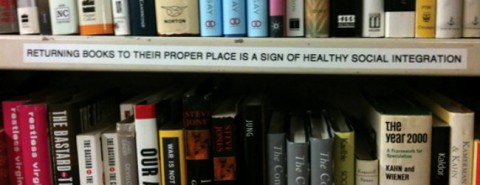A book’s life: One reader to another

Thirty years ago I was browsing a secondhand book sale in the basement of the divinity school where I teach. There was a folding table covered with worn-out books, arranged in no order and at giveaway prices. I was drawn to a devotional book by the British author and preacher Leslie Weatherhead, whose books on faith and psychology had achieved enormous popularity in the decades after World War II. The book was called A Private House of Prayer, and it had a gold cross embossed on the cracked leather cover. The book is a liberal Protestant’s version of Teresa of Ávila’s Interior Castle. It is divided into seven rooms of devotion, each signifying a distinctive mode of prayer. It begins with affirming the presence of God in room 1 and ends with meditation in room 7 at the top of the house.
Once I had the book in hand, what caught my eye was the name written inside the cover, that of Jim Cleland, one of my predecessors on our faculty and longtime dean of the university chapel. His sharp wit and Scottish brogue made him one of the most beloved persons ever to serve the university in any capacity. His most famous sermon was “Blessed Are the Debonair.” Jim died on the day I interviewed for a faculty position, so we never met. As I looked through the other books on the table, I realized they were all Cleland’s books, but A Private House of Prayer was the most personal one of all. It seemed to me that such a book had no business on a sale table. So I bought it.
When you buy a used book, it’s like joining a conversation in progress. You are learning not only from the author but from the book’s original owner, and the three of you form a small, silent symposium. The used books I order from Amazon for $.01 plus shipping often come with personal endearments and messages of encouragement written on the title page, as well as sage and not-so-sage comments scrawled in the margins, all of which now belong to me.




